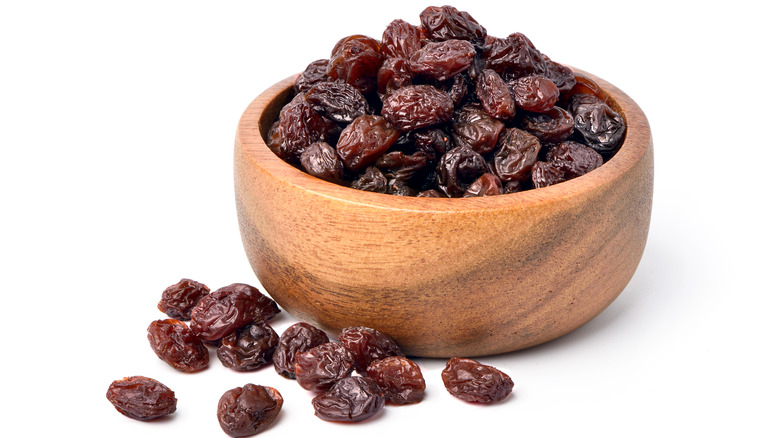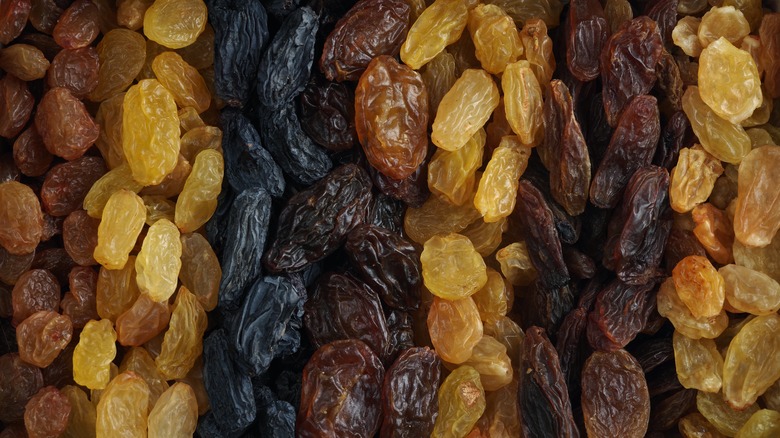Why Raisins May Be Dirtier Than You Think
When you think of a raisin, what springs to mind? Do you have fond memories of your grade school lunches and the requisite tiny box of Sun-Maid raisins? Maybe, visions of oatmeal raisin cookies or old-fashioned raisin pie spring to mind. Perhaps you can't help thinking of the "two scoops of raisins" in every box of Kellogg's Raisin Bran. And, if you're a 1980s kid, you may envision the saxophone-playing California Raisins singing "I Heard It Through The Grapevine." Yes, it seems that everyone has some sort of raisin memory floating around in their brain.
And why not? After all, the humble raisin has long been depicted as a wholesome and healthy alternative to sugar-laden processed snacks. Americans consume roughly 1.24 pounds of these dehydrated grapes per citizen per year (via Statista). Statista adds that the nation devoured 238,039 metric tons of these dried fruits in 2015-2016, the largest year in recent record. And California Bountiful reports that the approximately 3,500 raisin producers in California's San Joaquin Valley region grow 45% of the globe's raisin supply. The United States truly has a special relationship with the raisin.
But what if this tiny snack food isn't as innocent as it looks?
Some raisin samples were contaminated by 13 different pesticides
It turns out that raisins may not be a healthy alternative to other snacking options after all. According to EWG, the Department of Agriculture has included raisins in its pesticide testing for the first time, and the results are shocking. After studying over 750 samples, it discovered that 99% "tested positive for at least two pesticides," while each sample was on average "contaminated with more than 13 pesticides." The report adds that among the pesticides found on raisins were ones that harm brain development, are linked to cancer, can cause endocrine disruption, and more. And, in a shocking revelation, when compared to the EWG's "Dirty Dozen" list of pesticide-contaminated fresh produce, raisins are the worst offender of all.
According to Ranker, the biggest problem is that when raisin producers are trying to dry out their grapes, it attracts bugs. They turn to pesticides to combat these pesky visitors and consumers wind up with a heavily polluted food source. And, while organic raisins were somewhat better than traditionally produced ones, they still had the same amount of bifenthrin and chlorpyrifos — one a carcinogen and the other damaging to the brain (via EWG). After all, what does organic really even mean if produce with this label is still suspected of containing pesticides?
Yes, it's hard to believe that our diminutive childhood friend, the trusty raisin, is actually a harbinger of health hazards. If you are averse to ingesting large quantities of toxic chemicals — and, seriously, who isn't? — you may wish to bid these dried grapes a teary farewell. The question now isn't whether raisins are really nutritious but rather if they've been contaminated.

